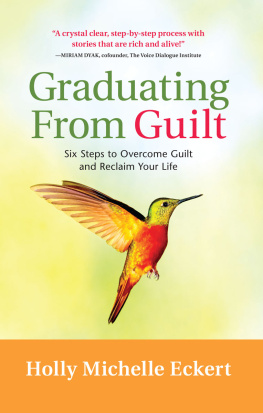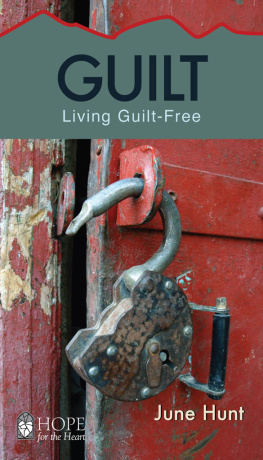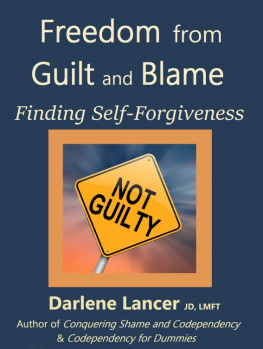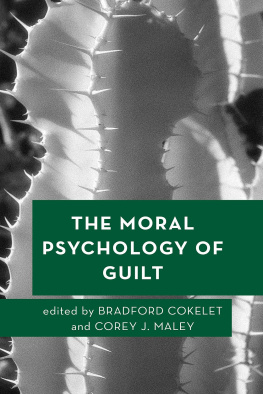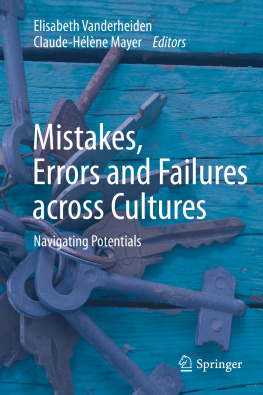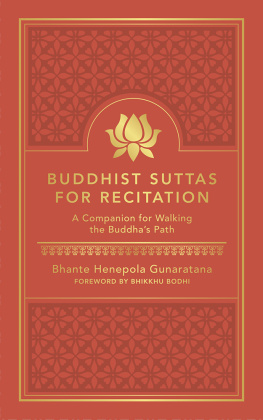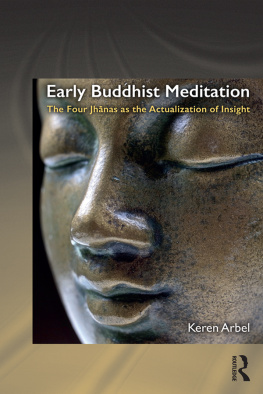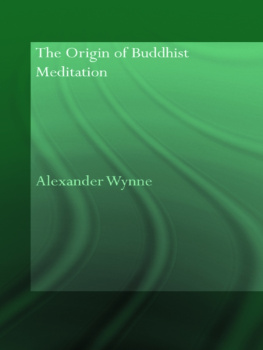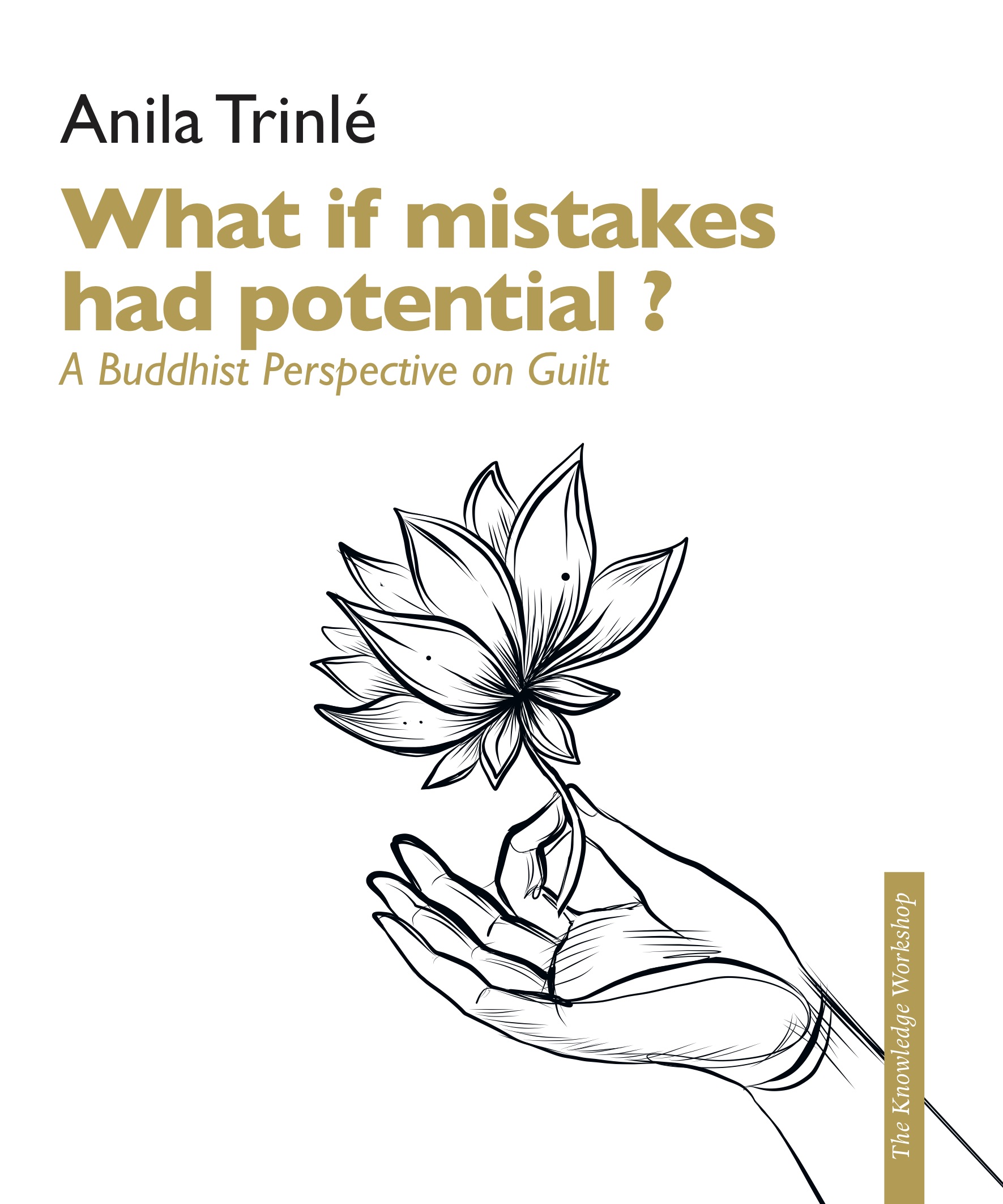Contents
Guide
Pagebreaks of the print version
Other Works by this Author
IN THE SAME COLLECTION
Being Present
A Skill Worth Developing
What if Mistakes Were Productive?
A BUDDHIST PERSPECTIVE ON GUHT
Anila Trinl
Translated from the French by Jourdie Ross
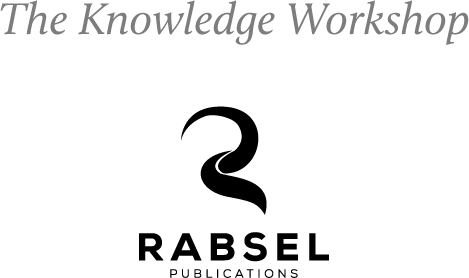
ORIGINAL TITLE:
Et si lerreur tait fertile?
Rabsel Editions 2017
Special thanks from the translator to Marjorie Erickson.
All rights reserved. No part of this book may be reproduced, stored in or introduced in a retrieval system, or transmitted in any form or by any means (electronic, mechanical, photocopying, recording or otherwise) without the prior written permission from the publisher, except for the inclusion of brief quotations in a review or for the private use of readers.
RABSEL PUBLICATIONS
16, rue de Babylone
76430 La Remue, France
www.rabsel.com
contact@rabsel.com
Rabsel Publications, La Remue, France, 2021
e-ISBN 978-2-36017-042-5
Table of Contents
Preface
I met Anila Trinl more than twenty years ago. She was not yet a Buddhist nun at that point in time and was a volunteer accompanying patients at the Palliative Care Unit at the Paul Brousse Hospital in Villejuif where I worked as a psychiatrist. It is an exceptional place where the staff does everything in their capacity to enable those at the end of their lives to bring their existences to a close in the best conditions; the staff eases patients pain and keeps their symptoms under control to the greatest extent possible. Nevertheless, in this place of final moments of life, at times suffering is not so much in the body as in the heart. Often, the weight of regretthings done and not done, said and not saidstagnates there. With the grief and remorse that they could have written their story differently, guilt sometimes possesses the mind and torments people to their last breaths.
How many times did Anila hear these regrets while at peoples sides? Those lost opportunities to say something or to forgive, those if onlys that might have made all the difference between peace and the bitter taste of a relationship damaged forever that death no longer allows the time to repair? I have the intuition that this experience in palliative care gave Anila a well-honed insight into the impact of guilt on a human life. The roots of her authenticity are evident when she speaks to us with so much depth and humanity. She shares with us this knowledge that she acquired among those whose existences are coming to a close, as well as her own life experience thatlike all human beingsis not free from mistakes, tangents, and regrets.
In this beautiful book that she offers us today, Anila connects the river of her personal journey with the majestic flow of the Buddhas teaching, bringing together her own reflections with this inexhaustible source of wisdom. The Buddhas teaching is demanding. Precision is required to understand it. Detailed and subtle knowledge of the concepts the Buddha entrusted to us is a component of the dimension of wisdom. This understanding then develops into the nondiscursive knowledge that arises from meditation. On this basisin the space of trusting abandon that meditation openswe are able to let this knowledge sink into us, to go beyond even logic and willpower. Clarityultimate understanding of the Buddhas teachingemerges from the meeting of these two worlds of knowledge. This clarity becomes evident in the appropriateness of our thoughts, our speech, and our actions that embody our compassion at work in the world. For is not the union of Wisdom and Compassion the essence of the spiritual path, as the great masters teach us?
As a Westerner, a mother, and a courageous woman who has been through the storms of life, Anila Trinl sheds light on the concepts of regret, error, and guilt, which are often unclear to us. She gives us a clear and intelligible explanation of the at times complex and difficult-to-grasp ideas of the Buddhas teaching. In her words, they become accessible and transparentdirectly applicable in our daily lives.
As a psychiatrist, I am too often confronted with the suffering generated by guilt not to recognize the relevance of this book. Our world needs such writingto find other paths than those that society offers in the face of suffering based on guilt. To point out other paths of easing this pain, other ways of honoring who we arefree from the low self-esteemor even self-hatredthat guilt feeds on.
Anila Trinl gives us precious keys. Let us soak in her teaching. It needs time to saturate us in order to reveal its true color, its true depth. It is up to us to open the door and walk the path. For, as the Buddha said, I cannot give you enlightenment. You alone can do that.
So, why wait?
Give yourself this greatest gift!
Christophe Faur
Psychiatrist, psychotherapist, and grief specialist. He has published numerous works on the subject with Albin Michel Publishing (in French).
Introduction
Our feelings of guilt exist in dependence on our relationship to making mistakes. We encounter these feelingswhich are a source of suffering and relational difficultyoften and in any given situation. Whether there is factual guilt or not, this suffering can occur and lead us to lose confidence in ourselves and develop low self-esteem.
In the Buddhas teaching, the Dharma, there is no explanation or presentation of guilt. Not that Buddhists do not experience feelings of guilt, but rather the way that the Buddhist perspective deals with emotions or afflictions offers another approach. Furthermore, the notion of inherently immoral errorsan emotional consequence of our relationship to making mistakesdoes not appear in the Dharma.
It is important to remember that the Buddha emphasized those parts of our way of functioning that hinder clarity of mind. He focuses on the afflictionsthe primary harmful states of mind: desire-attachment, aversion, mental opacity, jealousy, and pride. We will delve deeper into these emotions and their functioning, and we will see why they are sources of dissatisfaction and unhappiness.
From a Buddhist point of view, the feeling of guilt is an amalgam of several of these afflictions: attachment to our mental representations of things, aversion to what has happened, mental opacity in that we only perceive situations based on our often limited representations, and, lastly, pride because without that where did we get the idea that we should never make mistakes?
Presenting guilt this way allows us to realize that the key is seeing our way of functioning for what it is: a process of identification with various constituents that we will explore in the next chapter.
The most important part of this reflection centers on our relationship to mistakes and their consequences. We would be so happy not to make mistakes! But is it possible? Our way of functioning is the cause of our mistake-makinga fundamental cause that is inherent to the process of identification with our body, our sensations, our emotions, and all that develops from there.
We judge the discrepancy between what happened and what should have happened, which we discover after the fact, to be an error. The Buddhist approach considers the idea of immorality to be the result of a negative judgment of our mistakes. They can be cognitive errorsmistakes arising from an incomplete evaluation of a given situationor emotional errors due to getting carried away by an emotion without realizing it. It all happened so fast, and we couldnt see the consequences of our behavior until afterward.


